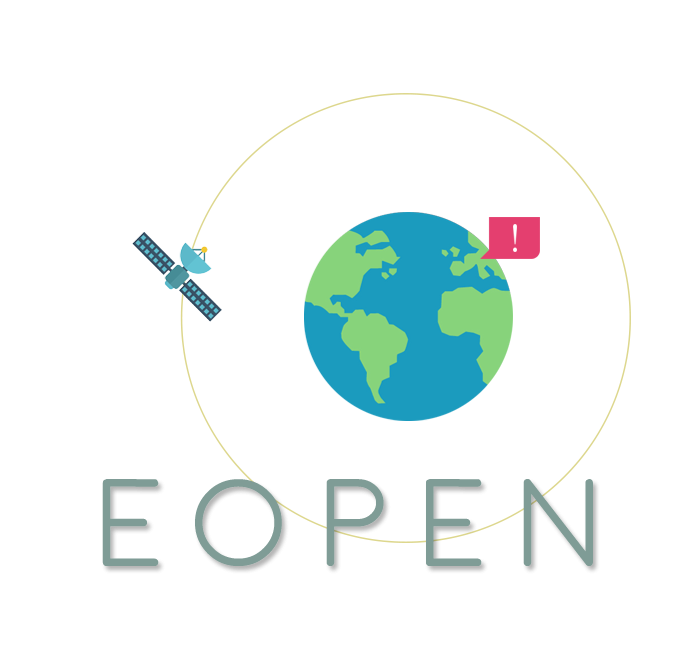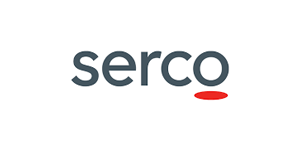
Serco SPA (SERCO)
Serco Group plc is a worldwide company specialised in the management and operation of outsourced services for the public and private sectors. Since its formation Serco has consistently supported the Space activities of national and international agencies, including ESA since early 1970’s and EUMETSAT since 1995, by providing specialised operational, engineering and scientific teams in the form of manpower as well as managed services. With more than 37 years of experience in the space business, Serco are among the top 50 World Space Manufacturing and Service companies. We currently employ more than 1,000 people in Belgium, Luxembourg, France, Switzerland, Germany, Holland, Spain, Italy, UK and French Guyana. SERCO specialises in the formation and provision of managed services to support the preparation, development, operation, quality control and maintenance of the European Earth Observation Satellite, Meteorology and Space Exploration Missions.
In EOPEN, SERCO is the project coordinator (WP1), responsible for project administration, financial management, progress reporting and quality assurance. In addition, SERCO is involved in the creation of a Joint Decision & Governance Architecture (WP2) and provides knowledge on the DIAS requirements (WP3). SERCO also supports NOA in the EO data acquisition. Moreover, SERCO assists SPACEAPPS in the integration of the EOPEN platform (WP6) and focuses on the interoperability and long-term data preservation of the collected data (WP8). Finally, SERCO creates extended market analysis and develops business models for the exploitation of the EOPEN outcomes.
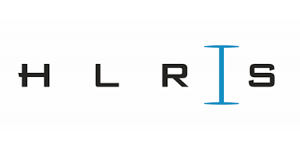
University of Stuttgart (USTUTT) - High Performance Computing Centre (HLRS)
The High Performance Computing Centre (HLRS) is a research and service institution affiliated to the Information Centre of the University of Stuttgart. It is one of the three national supercomputing centres in Germany and one of the three members of the GAUSS Centre for Supercomputing. HLRS is offering services to users from academia, and as one of a few such centers to industry as well. Here, HLRS has established close ties to industrial users—mainly from the engineering domain. Over decades, HLRS has built up world-leading expertise in the HPC domain focusing on supporting end-users, from the engineering domain at large, in parallel programming.
HLRS acts as an infrastructure provider to host and provide access to various infrastructures for high performance computing and state-of-the-art data analytics. In EOPEN, HLRS contributes actively to technical work packages including WP4 (knowledge discovery) and WP6 (integration). In particular, HLRS leads tasks T4.4 (data clustering) and T6.3 (HPC and big data infrastructure) in order to establish a seamless and energy-efficient workflow to perform data analytics on EO and non-EO data in combination with HPC. Pilots are actively supported by HLRS in order to incorporate data analytics into their individual solutions within WP7.
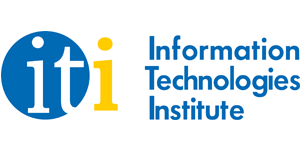
Centre for Research and Technology Hellas (CERTH)
The Centre for Research and Technology-Hellas (CERTH), founded in 2000, is the only research centre in Northern Greece and one of the largest in the country. CERTH has important scientific and technological achievements in many areas including: Energy, Environment, Industry, Mechatronics, Information & Communication, Transportation & Sustainable Mobility, Health, Agro-biotechnology, Smart farming, Safety & Security, as well as several cross-disciplinary scientific areas. Today CERTH includes the following five institutes: (a) Chemical Process & Energy Resources Institute (CPERI), (b) Information Technologies Institute (ITI), (c) Hellenic Institute of Transport (HIT), (d) Institute of Applied Biosciences (INAB), (e) Institute for Research and Technology Thessaly (IRETETH). Out of those, CERTH participates in this project through ITI. The participating team, namely the Multimedia Knowledge and Social Data Analytics laboratory (MKLab), part of ITI, has significant experience and scientific expertise on the technical aspects of EOPEN, namely on multimedia analysis, indexing and retrieval, clustering and classification, semantic modelling and reasoning, as well as web and social media mining, due to the participation in more than 30 European research projects in similar areas.
In EOPEN, CERTH is involved mainly in research activities in the domain of knowledge discovery (WP4) and knowledge representation (WP5). In particular, statistical methods are followed in change detection (T4.1) and machine learning techniques in concept and event detection (T4.2). Clustering techniques identify and visualise key-players and user communities in the Copernicus domain (T4.5). At the product level, unsupervised learning techniques are applied in the clustering of TBs of datasets (T4.4). An advanced multimodal fusion approach is be introduced in T4.4 to quantify similarities among heterogeneous multimodal objects to assist information retrieval (T4.3). In addition, CERTH is responsible for the creation of the EOPEN ontology (T5.1) to provide automatic semantic reasoning for decision making (T5.3). These tasks also require involvement in the linking of EO data (T5.2). Furthermore, CERTH is responsible for crawling data from the Web and Social Media sources (T3.2) and also for the Web presence of EOPEN and other communication activities (T8.2).
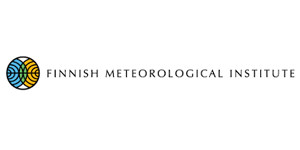
Finnish Meteorological Institute (FMI)
http://en.ilmatieteenlaitos.fi/
Finnish Meteorological Institute (FMI) is mandated by the Finnish government to produce reliable information on the state of the atmosphere, and its characteristics and phenomena, with the aim of promoting safety and serving various needs of the public, industry and commerce, as well as contributing to scientific ends. FMI observes the physical state, chemical composition and electromagnetic phenomena of the atmosphere and seas, as well as the physical state of the Baltic Sea and the Arctic marine region. Operating on the 24/7 principle, the Institute produces information and services about the past, present and future states of the atmosphere and seas.
In EOPEN, FMI is responsible for meteorological and climatological data acquisition (T3.3) and runs the climate change monitoring pilot (PUC3). FMI is also involved in the dissemination (T8.1), the communication (T8.2) and the long-term sustainability plan (T8.5) of EOPEN.
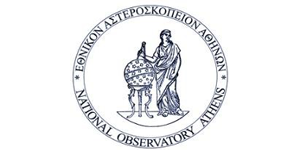
National Observatory of Athens (NOA)
The National Observatory of Athens (NOA) has been historically nominated by the Greek government as the sole institution in charge of natural disasters monitoring, with a clear mandate to conduct innovative research for the benefit of the Greek citizens. At global level it hosts, a) the UNESCO Chair for Natural Disasters, established within the framework of UNESCO-BRESCE, b) the Secretariat of the South Eastern European (SEE) Disasters Risk Assessment and Mitigation Network, and c) the Focal Point on the Global Earth Observing System of Systems (GEOSS), one of the four national GEO Offices in the World. The Institute for Astronomy Astrophysics Space Applications & Remote Sensing (IAASARS) of NOA, through its systematic participation to EC and ESA-funded projects, has achieved a considerable excellence in the area of EO-based environmental and natural disaster monitoring and management during the last decade. It has been providing support for Emergency Planning and Emergency Support, and Disaster Recovery to Environmental Monitoring, Civil Protection and Public Governmental Authorities in Greece, while it has consistent participation to EC, ESA and GMES/Copernicus projects.
The main role of NOA in EOPEN is to collect EO data from the Collaborative Ground Segment and other sources (T3.1) and to lead WP3. Moreover, NOA implements the food security pilot (PUC2), and therefore, leads T7.1. In addition, NOA is responsible for the dissemination plans of EOPEN (T8.1) and participates in the communication (T8.2) and exploitation (T8.5) plans. NOA also participates in the system integration (WP6), providing know-how in interactive user-friendly visualisations (T6.4).

Alto Adriatico Water Authority (AAWA)
The Alto Adriatico Water Authority (AAWA) is responsible for the management of the rivers flowing into the Northern Adriatic Sea, namely Isonzo, Tagliamento, Livenza, Piave, and Brenta. AAWA is responsible for the development and implementation of river basin management plans that lay down policies and measures for optimization of water use, hydro-geological and flood defence, protection of water bodies, and regulation of water rights in the basin as a whole.
AAWA in EOPEN contributes to the following activities: Stakeholder Engagement, State-of-the-Art, Best Practices and Challenges (WP2), End-User Requirements (T2.2), Pilots Design (T2.1), Pilots Execution and Validation (WP7), dissemination (T8.1) and communication activities (T8.2), along with outreach and exploitation of EOPEN (T8.5).
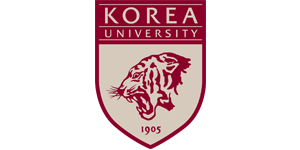
Korea University-Environmental GIS/RS Center (KU-eGISRS)
Korea University-Environmental GIS/RS Center (KU-eGISRS) aims to facilitate world class GIS/RS education and researches with facilities and technologies for GIS/RS. KU-eGISRS is composed of 6 research teams: i) life and natural environment; ii) civil engineering; iii) computer technology; iv) geo-environmental science; v) education; and vi) policy and administration. The six research teams work closely with each other to operate computer laboratories, manage GIS/RS equipment, and software for research. In addition, KU-eGISRS maintains and manages a comprehensive GIS/RS digital database, develops and diffuses GIS/RS education programs, materials, and consultation, as well as build human resources through regular GIS/RS education, and provides special GIS/RS lectures for public and other students.
In EOPEN, KU-eGISRS is mainly involved in the food security use case (PUC2) and assists NOA in its pilot implementation (T7.1). Moreover, KU-eGISRS participates in the change detection techniques (T4.1) and assists AAWA, SUN and FMI in the use case design (T2.1) and requirements (T2.2). In addition, KU-eGISRS contributes to the creation of the JDIG architecture (T2.3) and the description of the current and target operating models in food security (T2.4). Finally, KU-eGISRS plays a key-role in the dissemination, communication and exploitation of EOPEN (WP8).

Sundosoft Ltd (SUN)
Sundosoft Ltd., in 2014, has been reborn and inherited reputation from old Sundosoft Ltd. which established in 1987 and has led GIS industry. Afterwards, new established Sundosoft Ltd. has concentrated on GIS field and it is now a leading company of GIS industry. Sundosoft Ltd. puts best effort to innovate Geographic Information System with specialized workforces and IT technology, in particular, land, environment, marine, bio, culture, agriculture and national defense field, etc. Sundosoft Ltd. also provides GIS software sales, GIS application development, GIS data service, education and technical supports. Those outcomes are applied to various area including enforcement of national defense, disaster maintenance, urban planning, facility management such as electricity, telecommunication and city gas, resource environment management, land use utilization and management, transport, task quality management of agriculture, travel, and other location related information system.
In EOPEN, SUN participates in the food security use case (PUC2) and assists NOA in its pilot implementation (T7.1). Moreover, SUN participates in the use case design (T2.1) and use case requirements (T2.2). SUN contributes to the creation of the JDIG architecture (T2.3) and the description of the current and target operating models in food security (T2.4). Finally, KU-eGISRS plays a key-role in the exploitation (T8.5) of EOPEN and assists the other EOPEN partners in the dissemination (T8.1) and communication (T8.2) activities of EOPEN.

Space Applications Services (SPACEAPPS)
http://www.spaceapplications.com/
Space Applications Services (SpaceApps) is an independent Belgian SME founded in 1987, with head office in Zaventem, Belgium, an office in the Netherlands and a subsidiary in Houston, USA. In addition to its in house engineering projects, the company provides engineering services to the European Space Technological Centre (ESTEC) and the European Astronaut Training Centre (EAC). SpaceApps performs research and develops innovative systems, solutions and products to provide technology development, operation and training services to the aerospace and security markets and related industries. Activities cover manned and unmanned spacecraft, launch/re-entry vehicles, robotics, communications and solutions for earth observation, science and space exploration. SpaceApps provides system engineering services and advanced information systems expertise to develop and deliver products and services.
In EOPEN, SPACEAPPS applies its knowledge of managing complex workflows to investigate and implement solutions optimising the orchestration of user defined processes into the federated cloud solutions for big data processing. SPACEAPPS is responsible for establishing the EOPEN portal and integrating the modules, developed in EOPEN. Therefore, SPACEAPPS leads the system integration of EOPEN (WP6) and also leads the linking of existing open EO data (T5.2). Finally, SPACEAPPS creates the long-term data preservation (LTDP) policy of EOPEN (T8.3) and examines the innovation potential and exploitation opportunities beyond the Copernicus market (T8.5).
